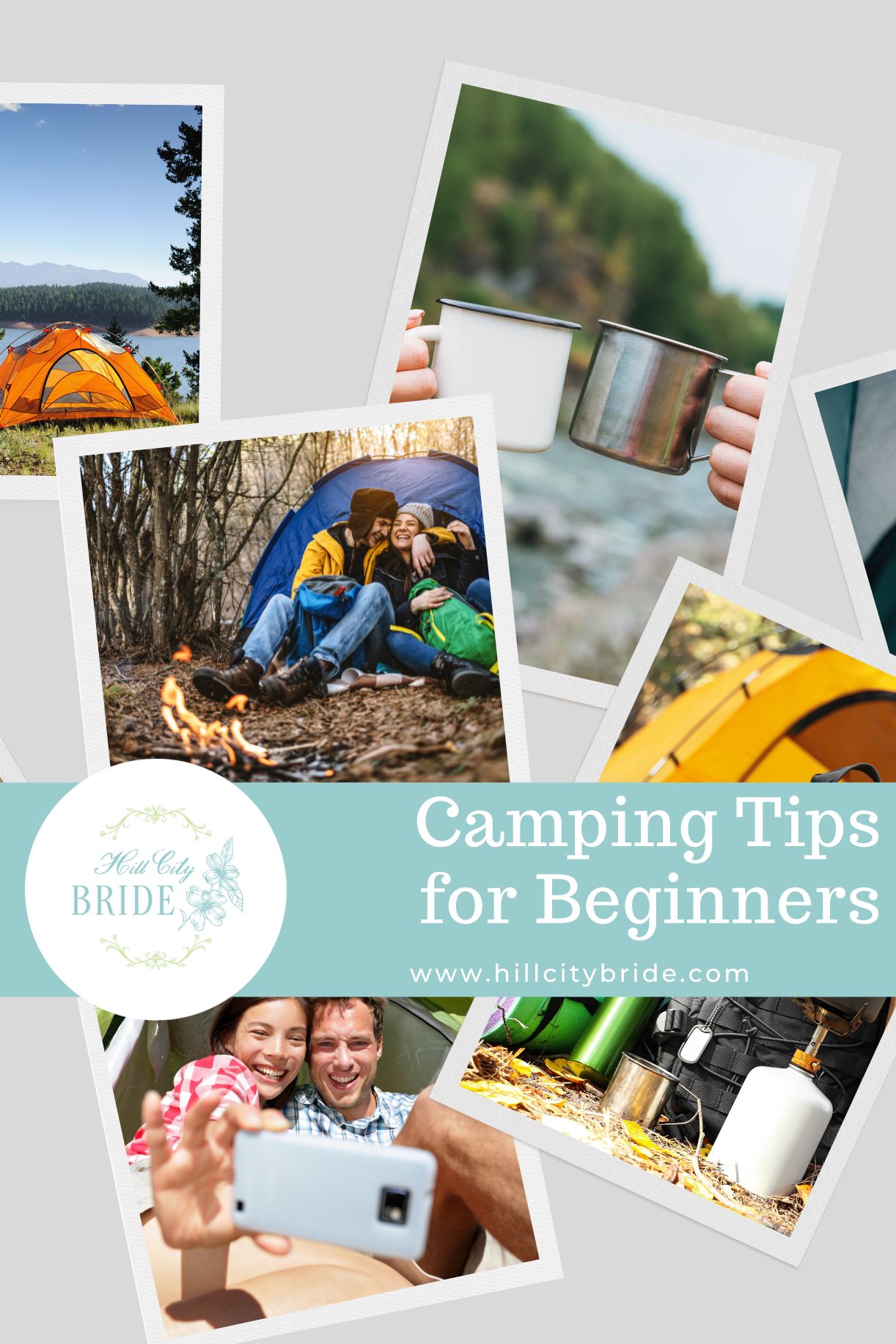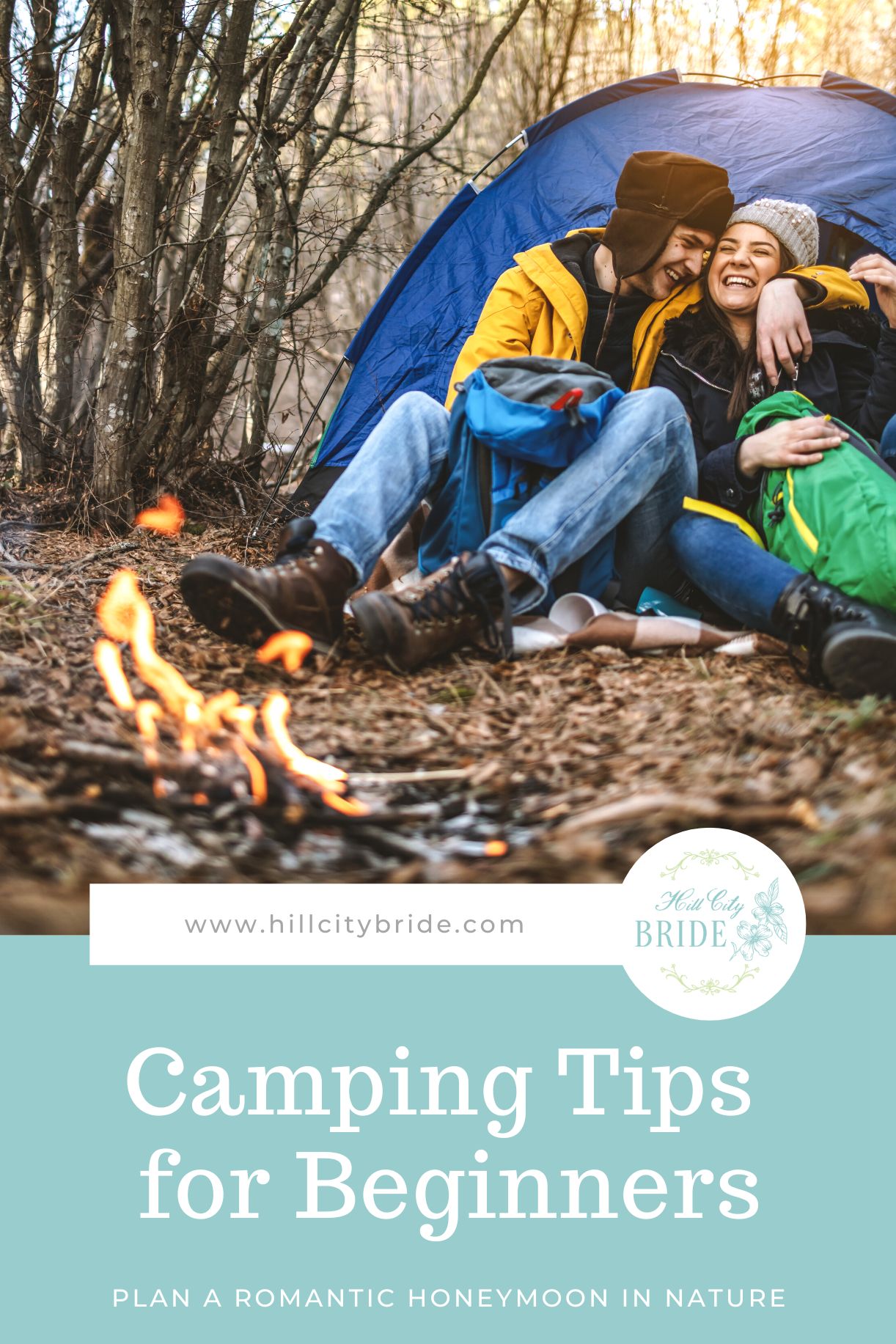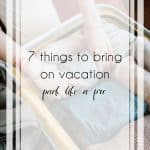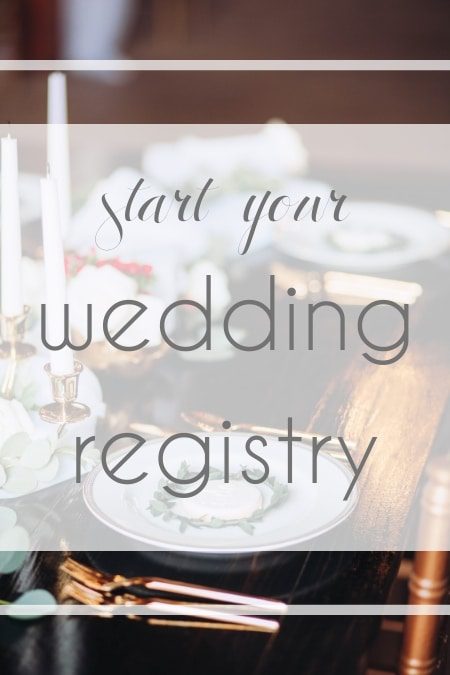Want to commune with nature on your honeymoon? Think about heading to a campsite. If you’ve never been before, our guide to camping for beginners will set you on the right path.
This camping article is by Supraja Lakshmi N, the India-based blogger behind Viral Vacation Ideas. This post also contains affiliate links, which help our blog grow.
Looking for a beginner’s guide to camping? You’ve come to the right place, especially if you’re planning a honeymoon camping trip. Camping is one of the best ways to immerse yourself in nature, as well as spend time with your new spouse.
Did you know that approximately 50 million people in the US camp annually? Camping for beginners can look pretty intimidating, with a lot of knowledge and skills that come into play. Fortunately, there has never been a better time to learn the ropes.
Let’s dive into what to know when camping for the first time.
FAQ About Camping for Beginners
Where to go camping for beginners?
The first question you and your partner need to answer is: where will you be camping? A neat trick to find campsites is by searching “places to camp” in Google. You’ll instantly get suggestions that are geographically close to you, such as camping in Virginia.
Or you want to honeymoon in a different location, simply pop in your honeymoon destination into Google to find spots.
What type is the best camping for beginners?
Frequent search terms include “backcountry camping for beginners” and “backpack camping for beginners.” However, those types of camping experiences may not be where you want to start, especially on a romantic trip.
Plus, backpacking and extremely rural camping may not have the amenities you need for your honeymoon. You could try RV camping, though.
This question of type matters because different campsites offer different amenities, have differing rules, and bear different costs. For a beginner camper, you probably want to go with a full-fledged site that offers showers and bathrooms.
Once you have more experience, you can tackle primitive camping, which lacks such amenities. Primitive camping means there aren’t amenities like bathrooms, running water, or electricity.
You have to bring all of your supplies, which is a much more daunting way to start a honeymoon camping experience. However, having the security of a tent is a fun way to start, but it can be a bit challenging.
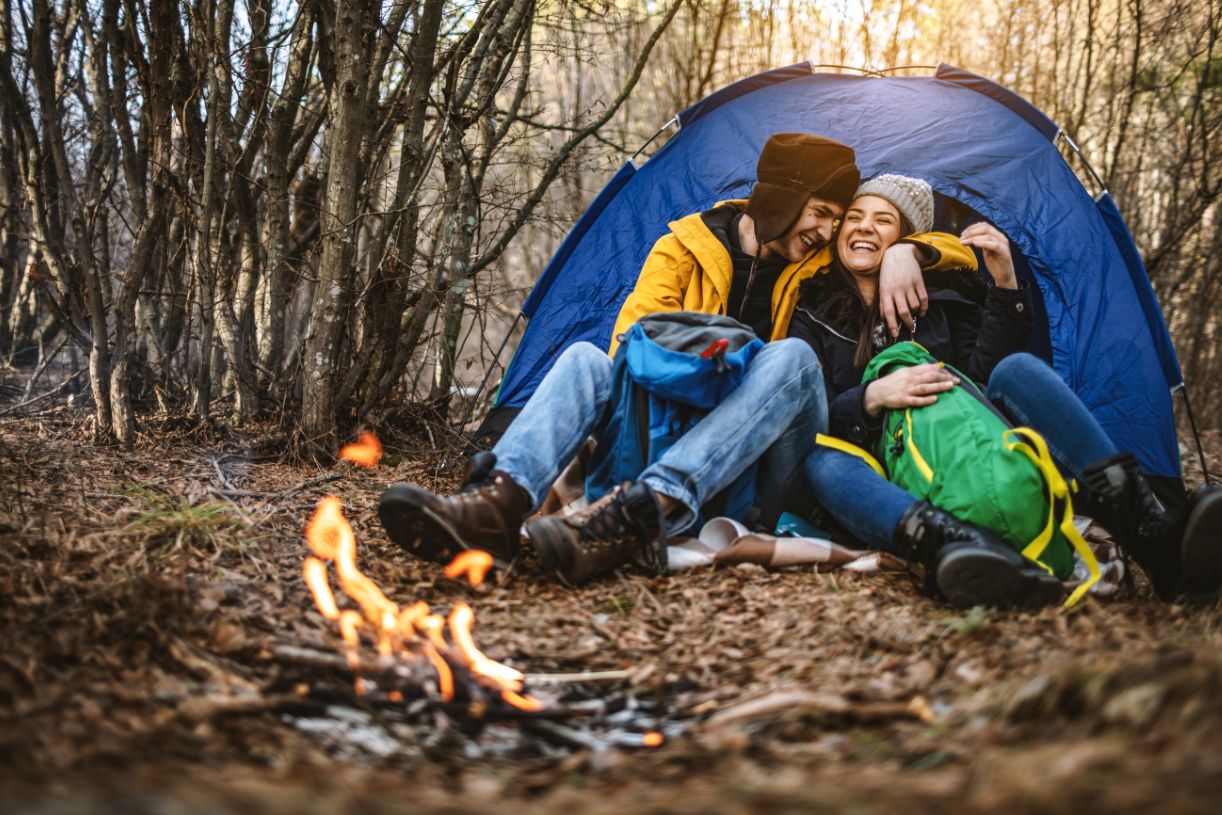
Going camping for the first time together can make for a fun, inexpensive honeymoon.
What is basic camping equipment for beginners?
Here is a list of the best camping gear for beginners.
- Camping clothes
- Backpack
- Sleeping bag & mattress pad
- First-aid kit
- Tent (if there is no shelter)
- Basic tools (knife, hammer, fire starter)
- A good multi-tool
- Headlamp and/or flashlight
- Camping cookware
- Cooler with ice for food and water storage
- Containers for water
- Seating (optional, but very nice to have)
Thinking of cooking while you’re on your honeymoon camping? Making meals over an open fire can be very romantic! If so, it wouldn’t hurt to make a camping food checklist as well. Consider the type of meals you want to make and factor in any dietary restrictions you may have.
Beginning campers should take an ice chest and prioritize foods that don’t need to be kept cold. Easy camping meals for beginners, like macaroni and cheese, are also great because just boil water and — voila! It’s a simple meal for you and your significant other to enjoy. Plus, carbs are great when burning so many calories on the trails.
What are differences between regular and primitive camping for beginners?
The main difference between reservation and primitive camping is that you need almost all of the same things. They are just in different quantities. When camping at a site with your vehicle close by, you can usually make a store run if necessary.
However, avoid leaving because it takes away from the enjoyment of getting away, which is one of the best things about camping.
When you’re primitive camping, you might be half a mile away from your vehicle. Plus, depending on the campsite, you may be far from a town. It’s a beginner mistake not to pack everything you need in one go, but practice makes perfect.
Also, consider where you are honeymooning. If you want to try beaches camping, you and your husband or wife must pack differently than sleeping in the middle of the woods.
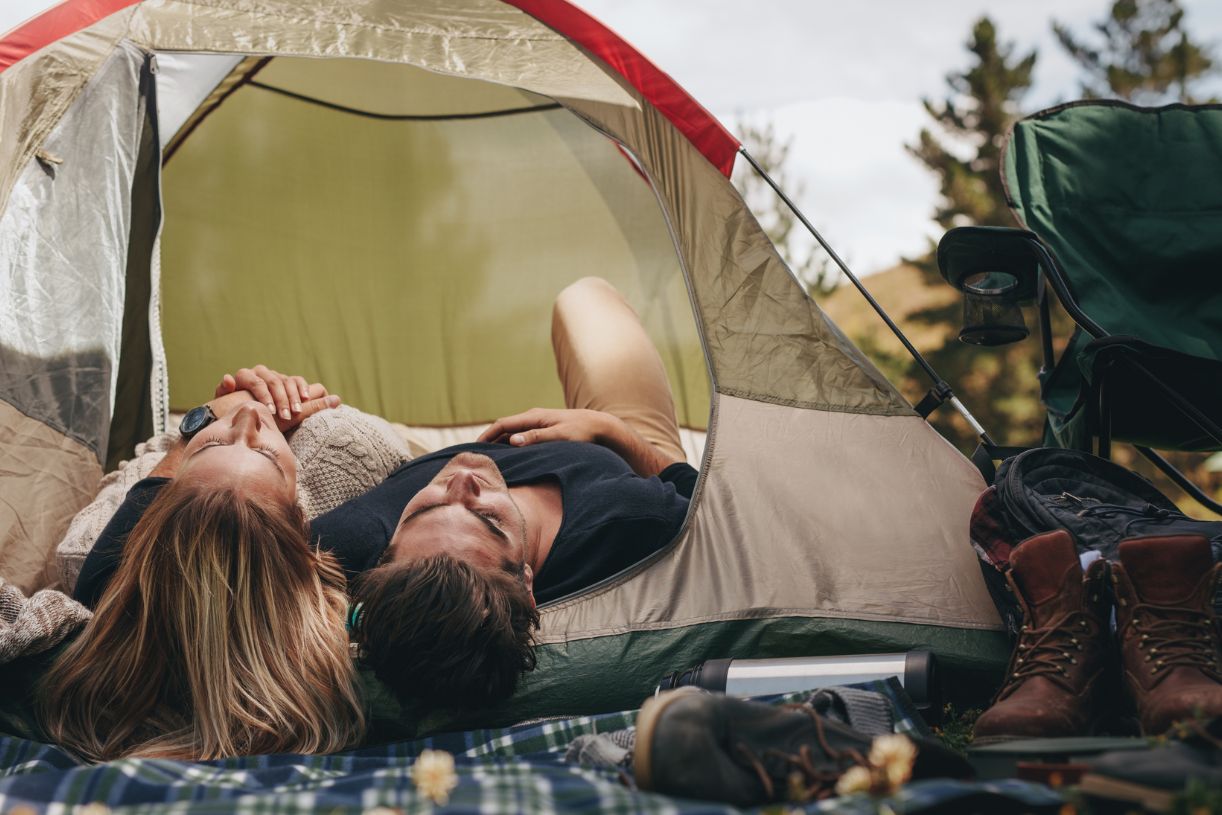
Primitive camping for beginners may best be saved for a trip other than your honeymoon.
FAQ About Tent Camping for Beginners
Now that we’ve answered, “What do I need to go camping for the first time?” you may have questions while on site. From setting up your tent to campside activities, here are questions couples have during their first camping trip.
What are camping beginner tips for setting up a tent?
It’s time to set up camp! Setting up your tent/shelter is first priority when you first get to camp. There’s a primary reason: assembling a tent in the dark isn’t a positive experience. And you want to set yourselves up for a successful first camping trip as newlyweds.
Setting a tent up at night is doable. However, even with the assistance of a headlamp, it makes everything more complicated than it needs to be. The critical thing here is to ensure you arrive when there’s still enough daylight left to set up.
Allow yourself 90 minutes, especially if you’re setting up the tent for the first time. Currently, most tents aren’t too tricky and set up very similarly.
What is camping advice for beginners after set up?
After the tent is up, start to put your sleeping materials (bag and mattress pad) along with other supplies inside. At this point, it’s mainly up to you and your spouse what to do next. The most important thing here is that you have shelter ready to go.
One idea is to start breaking in your campsite with fire using a fire pit. If there is no pit, build a fire surrounded by rocks and away from dry material. Camping is about having fun and enjoying everything around you — especially during your honeymoon.
Unless you’re trying to see everything in a national park, you can take your time and do what you want. There’s no need to adhere to a strict schedule, so do what feels natural.
You and your partner may discover that you hate cooking but love spending time hiking the many trails instead. Go with your gut and let each day bring new surprises.
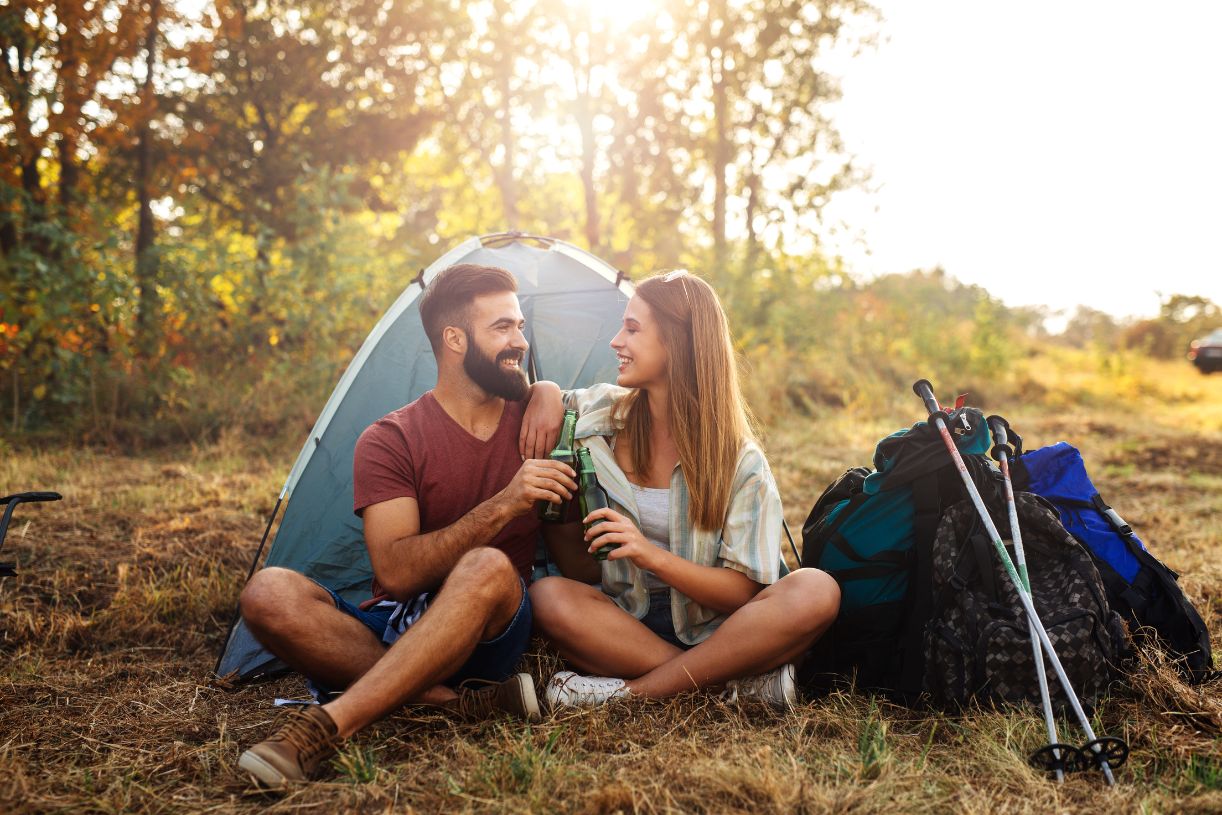
Many campsites have hiking trails nearby, which are perfect to explore on your honeymoon camping trip.
How do we find trails at a campground?
Get a map of the trails at the campsite. They are usually offered when you check in or online before arriving. Then, you can orient yourself and pick where you want to go.
Just don’t venture off of a trail into the woods. Doing so is a great way to get lost. You could also disturb wildlife you may not want to wake up.
It’s pretty easy to make the most of the trails, but take enough snacks and water when you head out hiking. When camping for beginners, you don’t want to run out of sustenance when you’re miles away from camp.
How to Stay Safe When Camping for the First Time
Beginning campers should protect the environment.
Be aware of the Leave No Trace (LNT) philosophy behind camping. LNT applies to everything you do while you’re at a campground.
Listed below are the seven principles of Leave No Trace
- Plan Ahead and Prepare
- Travel and Camp on Durable Surfaces
- Dispose of Waste Properly
- Leave What You Find
- Minimize Campfire Impacts
- Respect Wildlife
- Be Considerate of Other Visitors
The overall goal is to preserve nature for wildlife and future generations. Simple, right? It doesn’t take much effort to follow those guidelines correctly. Plus, a little forethought goes a long way in a positive experience on your first camping trip.
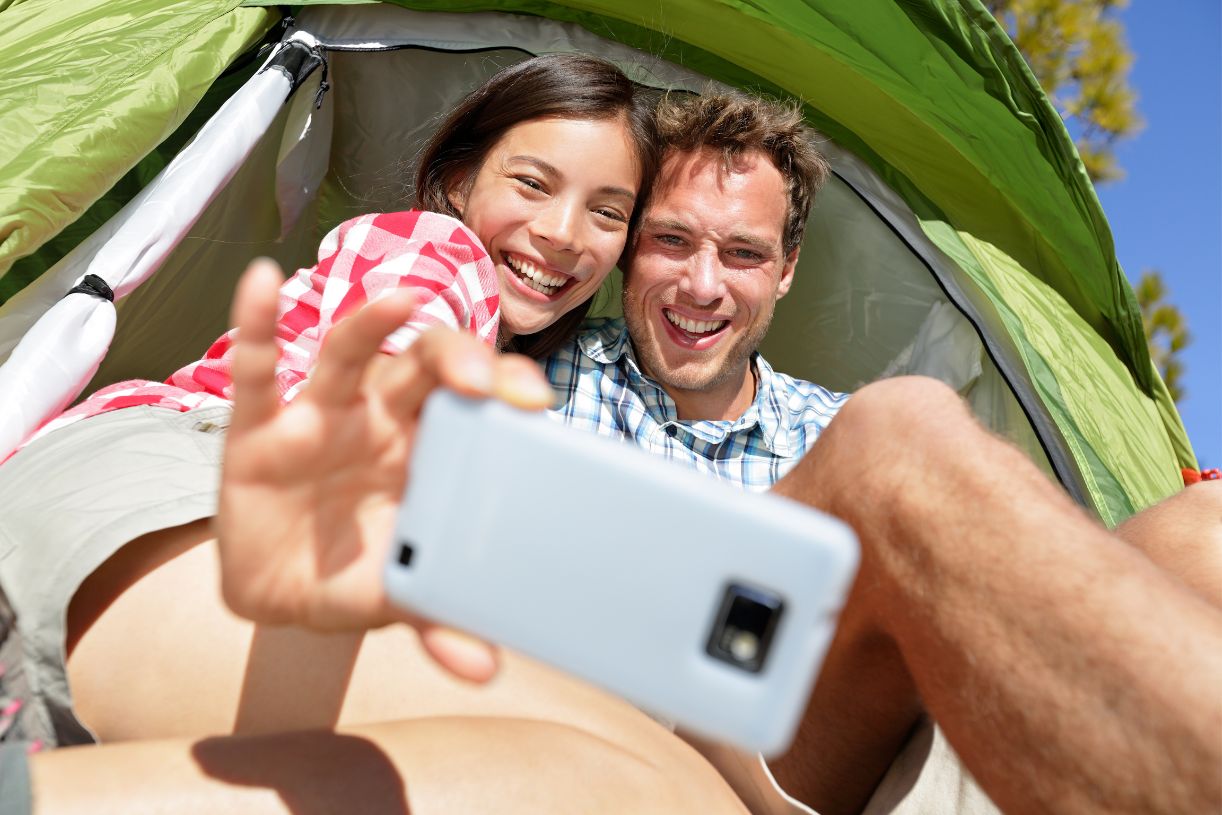
One of the best beginner camping tips is to have a positive attitude and have fun with your partner!
Be prepared for rain the first time you go camping.
Always be prepared for rain. It’s not camping unless there’s a downpour when you’re out in a tent. Adequate preparation goes a long way to keeping you dry.
First, set your tent up on the highest possible part of the land so water isn’t draining under it. Also, don’t skip setting up your rain fly. It will help keep you dry as rain hits the top and sides of the tent.
Lastly, keep a positive attitude. Instead of being sad or grumpy about the rain, make the most of it.
Here are a few ideas to get you started.
- Stay inside the tent and tell ghost stories.
- Go out and splash in puddles.
- Explore the campground amenities, such as a game room or restaurant.
- Head on a hike in the woods. The trees make an excellent rain cover.
Practice your firemaking skills before your initial camping trip.
Know how to start a fire before you get to your campsite. Just like the reality TV survival shows, starting a fire is one of the essential things in the wild. And if you bring a gas-powered stove/heating element, more power to you.
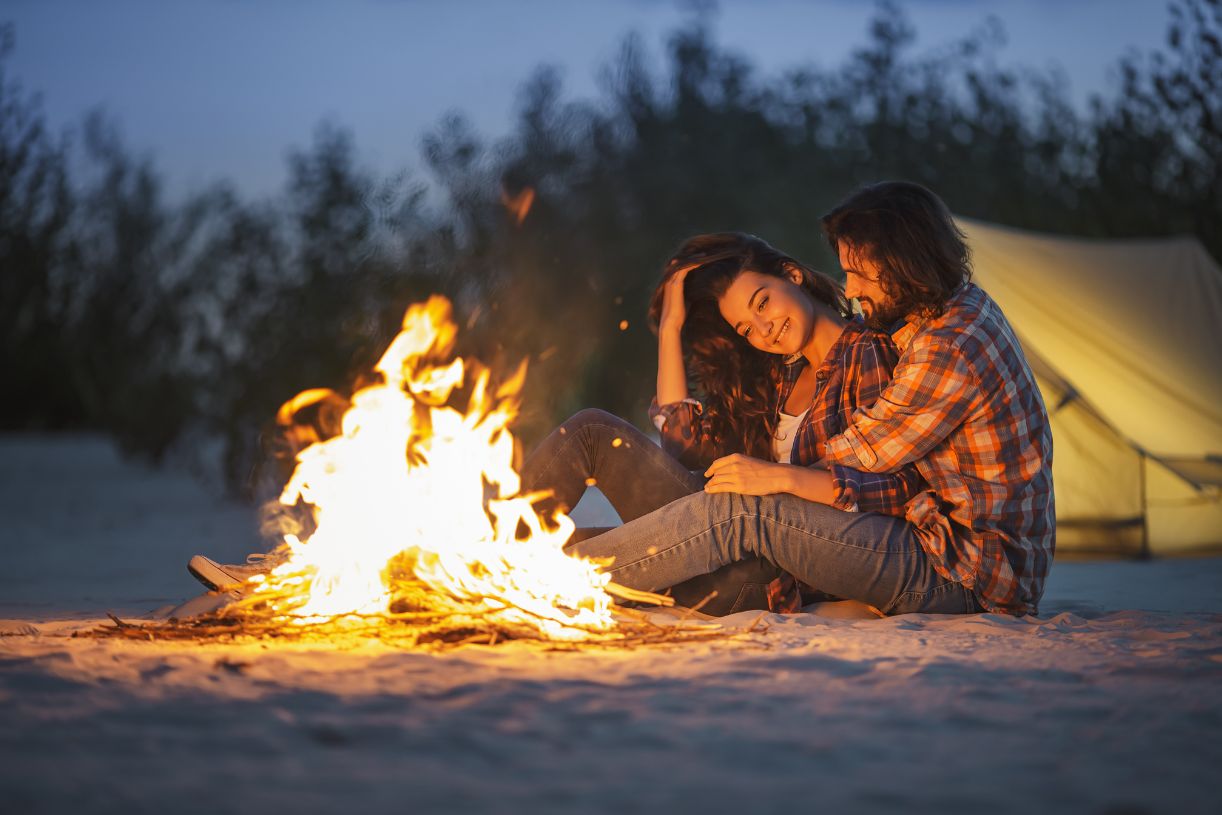
Set your first camping trip up for success by practicing a few things, like making a fire, beforehand.
Stock up on bug spray for your first camping trip.
One minor thing that may save you a lot of itching is bug spray. Depending on where you are and the time of year, it may be a feeding frenzy for mosquitoes. A little bug spray will make your experience much more enjoyable. No one wants to spend a romantic trip scratching at bug bites.
Research the wildlife near your first camping site.
Most of the time, you won’t see anything of concern while camping. But when you do, you need to know how to react and secure your camp correctly.
Also, don’t touch plants that you can’t identify. Familiarize yourself with harmful plants, such as poison ivy and oak.
Realize that camping for beginners should be fun.
The most important tip is to have fun with your partner. After all, you’re on your honeymoon trip, so make the most of it. Turn your phone off, and don’t worry about the time. You might be surprised how fast you get used to the natural flow of things.
Avoid risky activities when you’re at and around the campsite.
Don’t take dangerous risks when you’re at a park. Often, the nearest hospital will be an hour or more away. It can be tempting to scale large rocks, but unless you’re confident it’s safe, don’t do things like that.
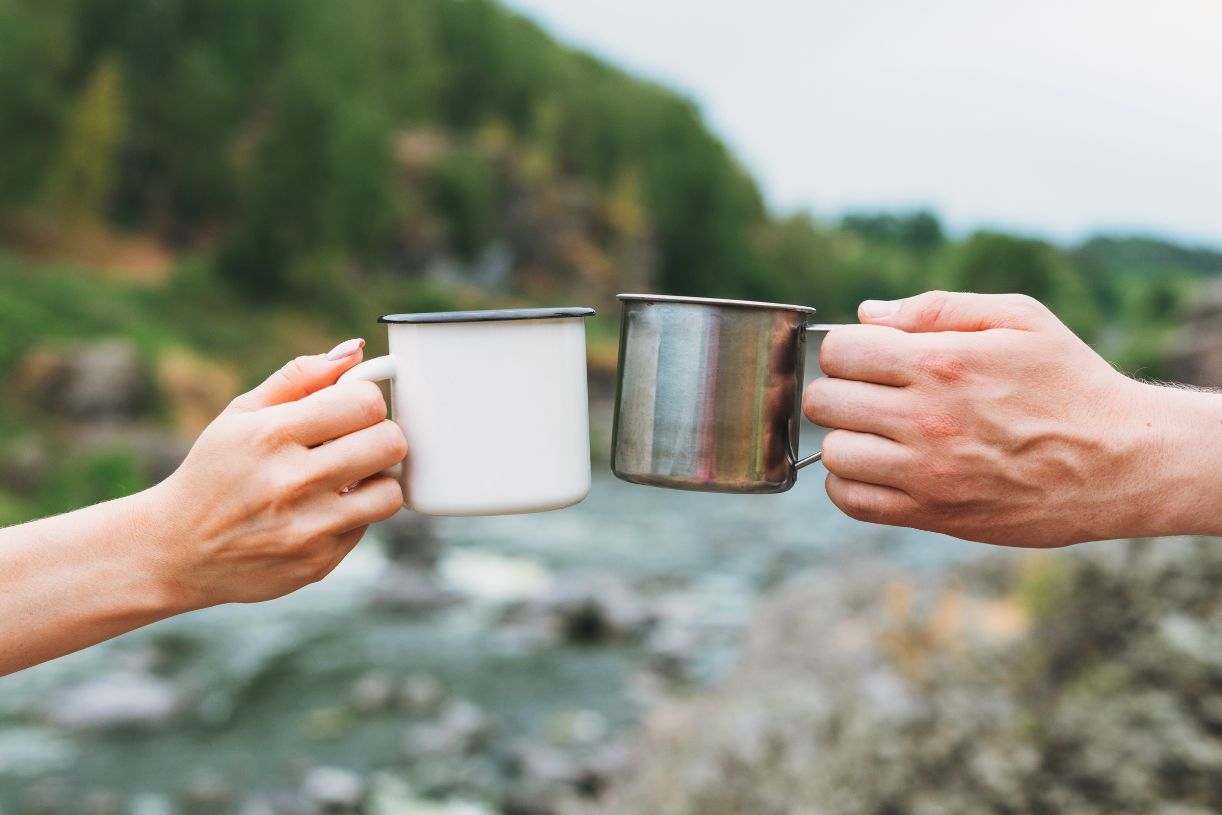
With the right equipment, a positive attitude, and your partner by your side, your first camping trip can be a great time.
Save our guide to camping for beginners!
Preparation is the most important thing when you’re a first-time camper. Everything else will fall into place once you get there, even if the plan isn’t perfectly executed. It’s hard for you to overcome a lack of food or water, though.
As with everything, once you have camped a few times, you will know these things instinctively. You’ll probably memorize your camping checklist and become a pro quickly once you know the basics.
